What This Korean Practice Is About
This Korean practice focuses on using the verb 있었어요(i-sseo-sseo-yo). 있었어요 is the informal polite past tense form of the verb 있다 (to exist, to have). It can mean ‘was,’ ‘existed,’ or ‘had,’ depending on the context. It is used to indicate that something existed or that someone had something in the past. In this practice, you will learn how to express past possession or existence in Korean.
있다 Conjugation in Informal Polite Past Tense
Korean Verb Conjugation Rules for Polite Past Tense
았어요: Used if the last vowel in the verb stem is ㅏ or ㅗ.
었어요: Used if the last vowel in the verb stem is anything other than ㅏ or ㅗ.
였어요: Used only for 하다 verbs.
- Verb → 있다 (it-da)
- Verb Stem → 있 (it)
- Last Vowel → ㅣ (i)
- Polite Past Tense Ending → 었어요 (eo-sseo-yo)
- Conjugation → 있 + 었어요 = 있었어요 (i-sseo-sseo-yo)
| Meaning | Verb | Last Vowel | Polite Past Tense Ending | Conjugated Verb | Revised Romanization |
|---|---|---|---|---|---|
| To exist / to have | 있다 | ㅣ | ~었어요 | 있었어요 | i-sseo-sseo-yo |
Example Sentences Using 있었어요
- 시간이 있었어요. = I had time.
- 친구가 집에 있었어요. = My friend was at home.
- 여기에 있었어요. = It was here.
- 친구가 있었어요. = I had a friend.
Notes: Korean sentences follow the Subject-Object-Verb (SOV) order. 이/가 is a subject marking particle. 에 is a location marking particle.
LET’S GET STARTED!
Korean Verb Practice: 있었어요
시간이 있었어요.
There was time.
시간 = time
돈이 있었어요.
I had money.
돈 = money
가방에 책이 있었어요.
There was a book in the bag.
가방 = bag, 책 = book
친구가 집에 있었어요.
My friend was at home.
친구 = friend, 집 = house/home
여기에 음식이 있었어요.
There was food here.
여기 = here, 음식 = food
옷장에 옷이 있었어요.
There were clothes in the wardrobe.
옷장 = wardrobe, 옷 = clothes
어제 공원에 사람이 많이 있었어요.
There were many people at the park yesterday.
어제 = yesterday, 공원 = park, 사람 = people, 많이 = much/in large numbers
학교에 선생님이 있었어요.
The teacher was at school.
학교 = school, 선생님 = teacher
그 가게에 물건이 많이 있었어요.
There were many items in that store.
그 = that, 가게 = store/shop, 물건 = item/goods, 많이 = much/in large numbers
문제는 답이 있었어요.
The problem had an answer.
문제 = problem, 답 = answer
있었어요 Practice Recap
| Korean Sentence | English Translation | Vocabulary |
|---|---|---|
| 돈이 있었어요. | I had money. | 돈 = money |
| 시간이 있었어요. | There was time. | 시간 = time |
| 가방에 책이 있었어요. | There was a book in the bag. | 가방 = bag, 책 = book |
| 친구가 집에 있었어요. | My friend was at home. | 친구 = friend, 집 = house/home |
| 여기에 음식이 있었어요. | There was food here. | 여기 = here, 음식 = food |
| 옷장에 옷이 있었어요. | There were clothes in the wardrobe. | 옷장 = wardrobe, 옷 = clothes |
| 어제 공원에 사람이 많이 있었어요. | There were many people at the park yesterday. | 어제 = yesterday, 공원 = park, 사람 = people, 많이 = much/in large numbers |
| 학교에 선생님이 있었어요. | The teacher was at school. | 학교 = school, 선생님 = teacher |
| 그 가게에 물건이 많이 있었어요. | There were many items in that store. | 그 = that, 가게 = store/shop, 물건 = item/goods 많이 = much/in large numbers |
| 문제는 답이 있었어요. | The problem had an answer. | 문제 = problem, 답 = answer |









